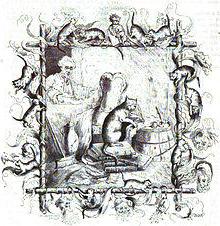The vale - what is it? Nikolai Leskov has a work in which he is talking about famine in Russian villages in the forties of the 19th century. The story is called "The vale." This word has a negative interpretation. What it means is described in the article.
In the Dahl dictionary
"The vale" is archaism. It is hardly possible to meet this noun in the work of a modern writer. Unless, of course, he does not try to give his narrative a shade of antiquity. In order to understand the meaning of a word that has long gone out of use, it is worth taking a look at Dahl's dictionary. According to the interpreter, Yudol is the world under heaven, the earth. At least, this definition gives the noun Vladimir Dahl.
"The vale" is a word that also appears in the Bible. In the book, which is central to Christians, it means human life. But it cannot be said that this word can be replaced by such nouns as fate, fate. Although the latter most accurately conveys its essence. The vale is a difficult time, life's trials, an existence filled with hardships and worries.
Examples from the literature
Tsvetaeva has a poem called "Fierce vale." Poets tend to handle words quite freely. Therefore, the exact meaning of a noun or adjective should not be sought in their works. But still let us turn to the poem of the Russian poetess. It, of course, is about love, which brings only suffering and the bitterness of disappointment. A summary of the work is impossible. The word whose meaning we are considering appears in the poem only once - in the first line. And then follows the phrase "fractional love" (earthly). The poetess, apparently in order to give an emotional touch to her work, emphasized that the feelings that brought suffering, visited her in difficult, severe times.

There is another example, now from prose. In one of the novels of the German writer Hoffmann, we are talking about Murra - a cat whose readiness and erudition can excite the imagination of even the most cold-blooded person. Fortunately, the main character does not utter words, though he thinks a lot. His thoughts are set forth in the book of Hoffmann.
In one of the first chapters of the novel, there is the phrase "During the time of my vale, when I was an unhappy kitten ...", and then the hero indulges in memories of the difficult fate of a homeless animal, forced to wander, endure hunger and cold. Murr reflects on the times when he had not yet lived in the house of the artist, who owned a large library, thanks to its contents, the cat acquired deep knowledge in literature.